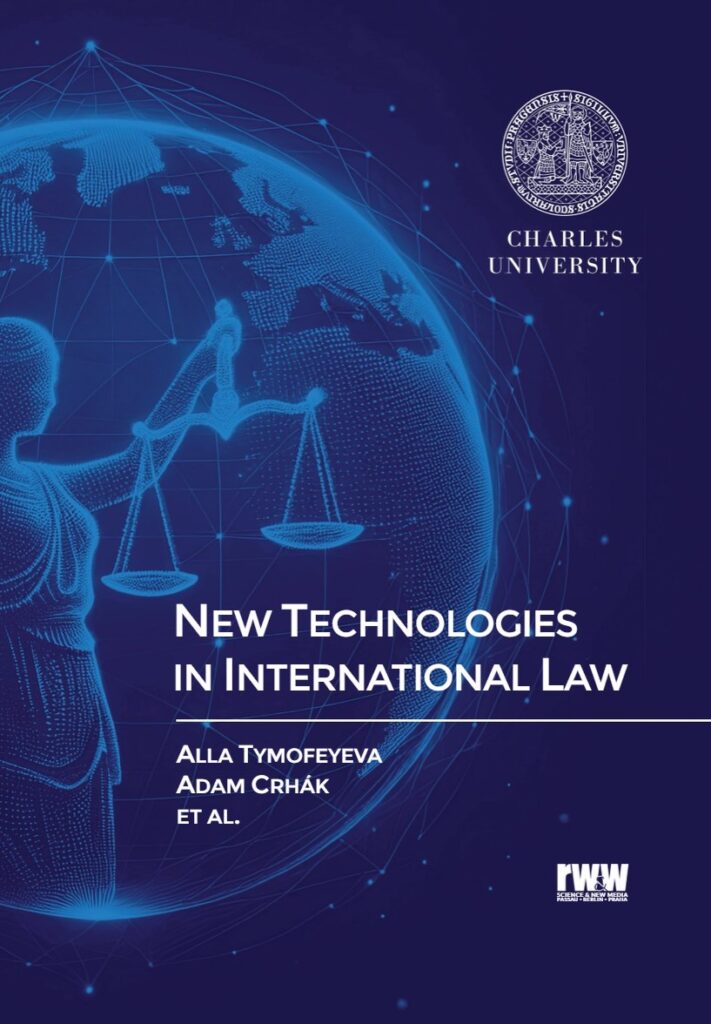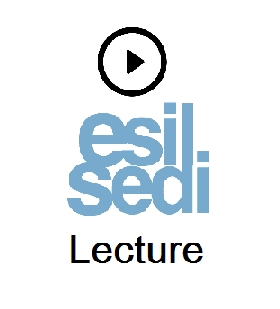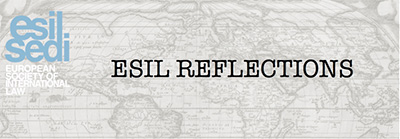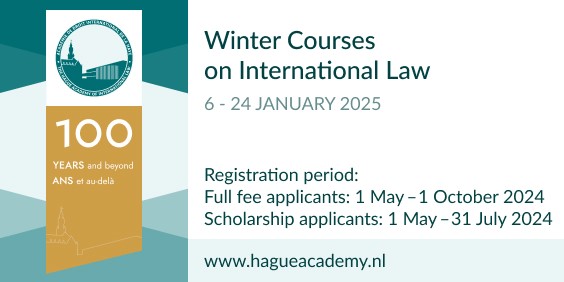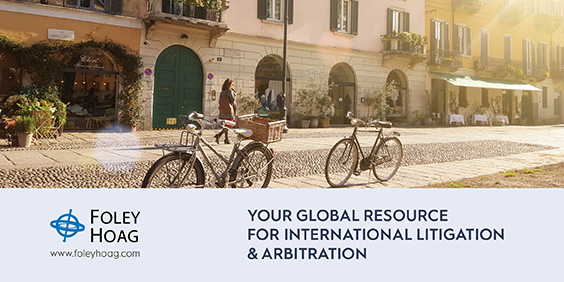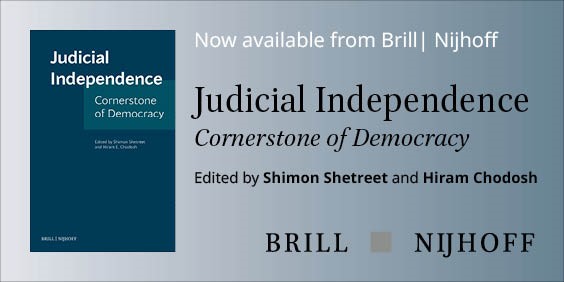Editor: Helmut Aust (Freie Universität Berlin)
1. Message of the President
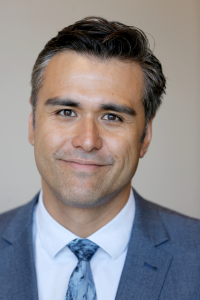
Dear ESIL members,
I write this in the final throes of marking season, with a sea of handwriting behind me and what I hope will be a quiet season free of administrative tasks. I hope that all of you are settling down for a summer of holidays, reflection, or the freedom to engage in your personal and intellectual passions. We are looking forward to welcoming you after the European summer holidays in Vilnius as we celebrate our 20th anniversary.
In the academic calendar, summer vacations are a period for reflection, and hopefully, a period of renewal. Some of you will be taking up jobs or careers; we will celebrate graduations, PhD defences, and other milestones. In our field, summer is the period that often precedes change in our profession, and it seems fitting for this reason to focus on these notions of change and renewal.
In our last Newsletter, I hinted that the ESIL Board has been engaged in a process of reflection, in keeping with our 20th anniversary celebrations, as to the next decade (and beyond) for ESIL. Driven by the Board, but also gathering the wise counsel of certain additional contributors, our strategic consultation is now in its final stages and a final report will be submitted to the Board at the next Annual Conference in Vilnius. We hope to speak freely as to the conclusions and suggestions being made through this consultation, as well as to take suggestions and engage more broadly with our membership as to the future of our learned Society.
ESIL is at an intriguing crossroads. International lawyering has established itself as a profession for quite some time; certainly before 1648, though historical reviews of our profession would probably locate the crystallisation of our profession as a distinct discipline sometime in the 19th century, with a move from faculties of canon law and the emergence of distinct professional bodies. Though building on that pedigree, and perhaps to a degree constrained by it, our young Society is merely twenty, the same age as the undergraduate students we often teach international law to for the first time. There is a freedom in this for ESIL, the fact that we have not fully settled into established practices, even as various experiments have taught us, through trial and error, what works and what could be improved.
Throughout this consultation, our red thread remains: what is the role of our learned society within the international legal profession? With other transnational/regional societies and well-established national societies already in operation, what is the added value of the European Society of International Law? For our first decades, we have remained a primarily academic society, focussing many of our efforts on fostering rigorous and high-quality legal scholarship amongst our members. But should ESIL be driving specific aspects of the debate forward, leading discussions and taking a position on substantive matters of international law? Should ESIL also begin to focus its attention on international lawyers beyond academia: in practice, civil service, civil society, or government? Is our role to be a specifically European voice in our globalised world, or to remain a site for globalised discussion amongst scholars for whom Europe is but a geographical site?
For all our enthusiasm about these strategic questions, there are also practical questions: can we accommodate all our aspirations and dreams within our membership-based, bottom-up funding model? Do we need to nurture partnerships for the purpose of financial sustainability? In short: what form will ESIL take in the coming two decades—and beyond?
We look forward to opening these discussions in Vilnius. For now, on behalf of the Board and the Secretariat, we wish you all a peaceful, restful and inspiring summer, whatever your plans.
Yours faithfully,
Gleider Hernández
ESIL President
2. Guest Editorial by Danae Azaria: Ascribing a Voice to Silent States
International law ascribes a ‘voice’ to silent States through the concept of acquiescence. A State is taken to accept (e.g. signifying opinio juris for custom identification or agreement for treaty interpretation) when it does not object, despite the fact that it is ‘in a position to react and the circumstances called for some reaction’ (see Conclusion 10(3), 2018 ILC Draft Conclusions on Custom Identification; Conclusion 10(2), 2018 ILC Draft Conclusions on Subsequent Agreements and Practice in relation to Treaty Interpretation).
International courts and tribunals refuse to infer acquiescence from State silence, during a period when the silent State had been deprived of ‘a fully operational government and administration,’ such as when it is afflicted by armed conflict (e.g. ICJ, Somalia v Kenya, [79]). However, beyond such situations, there is no evidence that the law today considers a silent State’s resources when determining whether it is ‘in a position to react’ (separately from having knowledge of the claim/conduct calling for a silent State’s reaction).
Although, under international law, all States are formally equal, in reality, they differ in terms of economic capacity. Because formal equality does not represent reality, it leads to substantive inequality in international law-making. For instance, owing to lack of resources, less economically powerful States are likely to be taken to accept claims made by powerful States.
Two models may be proposed to address substantive inequality within acquiescence: one may be called the ‘average State model’; and another may be called the ‘differentiated legislative diligence model’.
Under the ‘average State model’, ‘being in a position to react’ would be a fixed standard applicable to all States: the capability of the ‘average State’. However, two challenges arise. First, on what basis should ‘the average State’ be defined? Should economic criteria be employed, such as the GDP of a State that stands in the middle when ranking the GDP of all States? Or should it be defined by reference to the number of civil servants in a State’s Foreign Affairs’ Ministry? Different States may be more or less able to react, because being interested in particular fields they have ‘invested’ resources in those more than in others. Second, if the law followed this model, some States would still be expected to perform at a level that exceeds their real capacity; their capacity would be below that of the ‘average State’. The justification behind this model is not substantive equality, but ‘reasonableness’.
Instead, the ‘differentiated legislative diligence model’ is inspired by two ideas. On the one hand, international law is a decentralized order made through the interaction (claims and reactions) of States. In such context, all States bear ‘legislative due diligence’. They are expected to object, in the face of consistent legal claims. If they do not object, they are taken to accept. On the other hand, some due diligence obligations in environmental or human rights law are subject to the capabilities of each party (e.g. Art 6 CBD) or ‘to the maximum of [each party’s] resources’ (Art 2 ICESCR). The model of ‘differentiated legislative diligence’ would entail that all States bear ‘legislative diligence’, but differentiation would be made based on each State’s capabilities.
However, four challenges arise. First, formal equality was a great achievement of the decolonization process for which developing States fought eagerly and successfully. Sitting on the same footing on the ‘law-making table’ across all fields of international law is not the same as undertaking specific obligations on the condition that you will perform them with the means available to you.
Second, differentiation in assessing whether a silent State’s capacity is ‘impaired’ from reacting means that less powerful States would have a ‘silent veto’ in law-making (or become ‘silent persistent objectors’). Assuming that this radical change of the law became acceptable, it would obstruct law-development.
Third, the method for determining ‘capability’ is unsettled, even in areas where the term is often used. In its 2024 Advisory Opinion on Climate Change, ITLOS reasoned that, pursuant to Article 194(1) of the Law of the Sea Convention, ‘States with greater [capabilities must do more to reduce emissions] than States with less means and capabilities’ (Climate Change Advisory Opinion, [227]). Yet, it did not explain how ‘less’ and ‘greater’ capabilities must be determined.
Fourth, differentiated standards may cause lack of legal clarity and determinacy. Even if this approach did not undermine the capacity of the law in general to govern behaviour, it would not be beneficial to less powerful States. When rules are indeterminate, powerful States have more leeway to exert pressure.
Perhaps ‘differentiated legislative diligence’ should be maintained in a different aspect of ‘being in a position to react’. Constructive knowledge of the circumstances that call for one’s reaction is based on multiple elements, such as, the silent State’s capability in a particular field; the claim’s/conduct’s context; and the subject-matter’s significance for the silent State. Transposing the reasoning of ITLOS’ Seabed Disputes Chamber that ‘[w]hat counts in a specific situation is the […] technical capability available to a given State in the relevant scientific and technical fields’ (Responsibilities with Respect to the Area, 2011, [162]) means asking whether a silent State has the technical capacity to know (and understand) the claims of acting States. For instance, in space or cyberspace law, States with technical capabilities and interest have construed knowledge of other States’ claims in these fields. This was the ICJ’s reasoning (by analogy) in Anglo-Norwegian Fisheries (p. 139). However, it would be more difficult to establish the construed knowledge of States which lack capabilities/interests in these fields (see Azaria, British Yearbook of International Law, 2024, Section B.ii).
Addressing substantive equality when determining whether a State is ‘in a position to react’ and thus acquiesces involves a clash between values: substantive equality and law determinacy. Answers to conflicts of values can be given by those who make international law (States). I hope that my exposition of the advantages and challenges of different options offers a fruitful framework for further reflection.
* Dr Danae Azaria, Associate Professor of Public International Law, Faculty of Laws, University College London (‘UCL’). Principal Investigator, ERC Starting Grant, State Silence. This research has been funded by the ERC Starting Grant, ID: 850706. It is based on the author’s keynote speech at the 2022 Joint Workshop of the UN-Academic Council on the UN System (ACUNS), and the author’s speech at the 2023 informal legal advisors meeting at the Legal (Sixth) Committee of the UN General Assembly.
3. Meet an ESIL member – Federica Paddeu
You can find the video introducing Federica Paddeu, Associate Professor of Law and Derek Bowett Fellow, Queens’ College; Fellow, Lauterpacht Centre for International Law and member of the ESIL Board, here.
4. What’s Going On?
 2024 ESIL Annual Conference in Vilnius – REGISTER NOW!
2024 ESIL Annual Conference in Vilnius – REGISTER NOW!
Let’s meet at this year’s ESIL annual conference in Vilnius, Lithuania. The main event will be preceded by the ESIL IG workshops scheduled for September 4 (Wednesday) 2024. Please check the ESIL website for more information on the workshops and their programmes.
The ESIL 20th anniversary celebration is planned for September 4, 2024, 19:30 EEST at Aula Parva, Vilnius University. On the occasion, a conversation will be held with former presidents of the Society on the role ESIL has played in building an international legal community in Europe, how it has evolved and contributed to academic debate, and what its future role should be in Europe and beyond. The discussion will be followed by the reception. Please register for the anniversary celebration using this link.
September 5 (Thursday) 2024 will be the first full day of the conference, packed with exciting panels and conversations. The afternoon of the first conference day will feature meetings between new members, the ESIL board, publishers and editors, IG conveners, as well as the welcome reception.
The second day of the conference September 6 (Friday) 2024 will continue with fascinating forae and agoras’ topics, including “Accountability and Immunity in International Law” featuring Veronika Fikfak (UCL), Photini Pazartzis (Tufts), Iulia Motoc (ICC) and Gabija Grigaitė-Daugirdė (the Ministry of Justice of the Republic of Lithuania).
The general assembly and the elections of the ESIL will be held on the second day of the conference. The conference will close with a Gala dinner at the Duke’s Palace.
The conference organisers are grateful to the partners of the conference: Go Vilnius, the Ministry of Justice, and the Ministry of Foreign Affairs of the Republic of Lithuania. The event is made possible by the generous support of the sponsors: law firms Glimstedt, TGS Baltic and Foley Hoag LLP. The conference hall will feature the following exhibitors: Nijhoff Brill, Hart Publishing, Max Planck Institute for Comparative Public Law and International Law, Oxford University Press, the Hague Academy of International Law, T.M.C. Asser Press, Springer, the Council of Europe.
The preliminary programme of the conference is here.
Now is the best time for registration. Please visit the conference website for accommodation advice and follow @esil2024vilnius for updates.
ESIL-supported Conference on “Legal discourses on international and EU migration/refugee law in Central and Eastern Europe – Emerging new narratives or business as usual?”
On 9-10 May 2024, the Faculty of Law of Charles University (Czechia) and the Corvinus University of Budapest (Hungary) with the support of the Institute for Legal Studies– Hungary, the UN Refugee Agency (UNHCR) and the Odysseus Academic Network organised an ESIL-supported international conference on “Legal discourses on international and EU migration/refugee law in Central and Eastern Europe: emerging new narratives or business as usual?”. The event was a good opportunity to look back, assess and reassess the approaches of legal scholars in the sub-region to the ways in which they engage with EU and international law in the field of migration and refugee law, both in contributing to international legal discourse and in teaching these areas of law in their respective institutions.
The full report of the event is available here. Further details and picture are available on the conference website.
New e-publication on New Technologies in International Law
On 23 and 24 November, the New Technologies in International Law conference, organized by the Department of International Law as an ESIL-supported event, took place at the Faculty of Law, Charles University in Prague (for more information, see this link). The conference resulted in a recently finalized e-book, which is available here.
Divided into seven chapters, the e-book guides readers through a wide range of topics and perspectives, highlighting the challenges and opportunities of rapid advancements in the digital age. It addresses the intersection of new technologies and public international law, exploring topics such as autonomous weapons systems, protecting critical infrastructure against cyber-attacks, and combating cybercrime in the context of international judicial cooperation. The book also covers the challenges of digitizing tax systems in developing countries, the impact of artificial intelligence on healthcare systems, strategies to combat misinformation in the public space, and an analysis of access to justice during the COVID-19 pandemic. The final chapter contains two contributions examining the human rights implications of modern technologies: one explores AI systems implemented in Israel, while the other critically assesses digital border management in the context of the Mediterranean migration crisis.
The organisers would like to extend their sincere appreciation to all the authors for their high-quality contributions to the book.

ESIL Corner in the European Journal of International Law (EJIL)
The special, collaborative relationship between ESIL and EJIL is reflected in the ESIL Corner published in the journal after each ESIL Annual Conference.
The ‘ESIL CORNER’ in the latest EJIL issue (Vol. 35, issue 1) includes remarks about Aix-en-Provence 2023:
♦ Fairness and the Quaintness of International Legal Debates in Europe
Jean d’Aspremont
5. 2024 ESIL Board Candidates
Seven members of the ESIL Board will be elected during the General Assembly at the 2024 ESIL Annual Conference in Vilnius, Lithuania.
The 2024 ESIL Board Candidates are (in alphabetical order):
- Freya Baetens (candidate for re-election)
- Giulio Bartolini
- Machiko Kanetake
- Patryk Labuda
- Inga Martinkute
- Ana Salinas de Frías (candidate for re-election)
- Silvia Steininger
- Katalin Sulyok
- Christian Tams (candidate for re-election)
- Nicholas Tsagourias
The ESIL website will soon feature the bios, statements, and video presentations of all ten candidates.
NB: All ESIL members who have renewed their membership for 2024 by 26 August 2024 will be entitled to vote.
Latest update on 17/7/2024
6. ESIL Lectures and Dialogues
The ESIL Lecture Series hosts broadcasts of presentations on international law topics held at partner institutions, allowing the presentation to reach a wider audience of ESIL members and non-members alike. ESIL lectures are available on the ESIL website and on the ESIL YouTube Channel.
To propose an ESIL lecture, please read the ESIL Conference Series Guidelines.
Judge Hilary Charlesworth held the latest lecture at Stockholm University on 21 March 2024 on Challenges facing the International Court of Justice. The recording of the event is now available here.
All previous ESIL Lectures are listed here.
7. ESIL Paper Series
The ESIL Paper Series features papers presented at ESIL events (Annual Conferences, Research Forums, and Interest Group events). Publication in the ESIL Paper Series enables authors to disseminate their work widely and reach broader audiences without the usual delays involved in more traditional means of publication. It does not prevent the subsequent publication of papers in academic journals or edited collections.
The current Series editors are ESIL Board members Adriana Di Stefano, Federica Paddeu and Catharine Titi.
ESIL Papers will be included in the EUI CADMUS Research Repository. The first three papers presented at the 2023 ESIL Research Forum in Tartu are now available! More papers will be added in the coming weeks.
All the papers presented at previous events from 2021 to 2023 are available here.
NOTE: Papers presented at ESIL Conferences from 2011 to 2019 can be downloaded here.
8. ESIL Reflections
ESIL Reflections offer up-to-date reflections on current issues in international law. The Reflections cover a wide range of topics relating to current developments in international law and practice as well as theoretical reflections in a way that is relatively accessible to non-experts. The aim is to foster discussion between ESIL members and international law scholars and practitioners more generally – in Europe, but also beyond. ESIL Reflections are published on this website and distributed freely to ESIL members.
The editors are Patrycja Grzebyk (editor-in-chief), Lucas Lixinski, Alina Miron, Anne Saab and Peter-Tobias Stoll.
ESIL Members who have an interest in contributing are encouraged to do so. Please contact Patrycja Grzebyk ([email protected]) if you would like to contribute.
Latest publications:
9. News from Interest Groups
 ESIL Interest Groups are a vital part of the Society’s success and activities. A list of the groups is available on the ESIL website.
ESIL Interest Groups are a vital part of the Society’s success and activities. A list of the groups is available on the ESIL website.
Interest Group on the International Law of Culture
The IG has recently had several events. On 16 April, it organised an online workshop titled ‘Unpacking the Meaning(s) of “Restitution” in International Law of Culture’ – an online event preceding the ESIL Research Forum ‘Revisiting Interactions between Legal Orders’, Nicosia (Cyprus). In February and May, the IG promoted the book, 5 Years of the UNESCO Diversity of Cultural Expressions Convention Actors, Processes and Impact, edited by the IG convenors, during two events held at the UNESCO Headquarters in Paris and the Círculo de Bellas Artes of Madrid. On 4 September, the IG will organise a pre-conference titled ‘New Technologies at the Service of Cultural Justice’ on the occasion of the ESIL annual conference in Vilnius.




